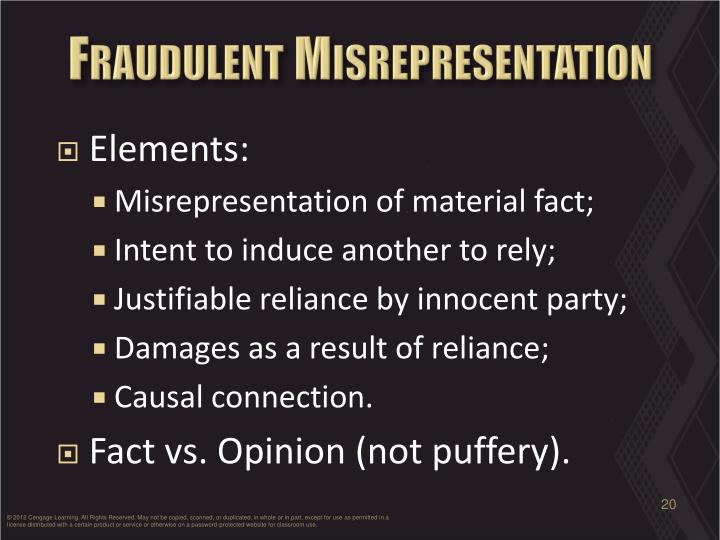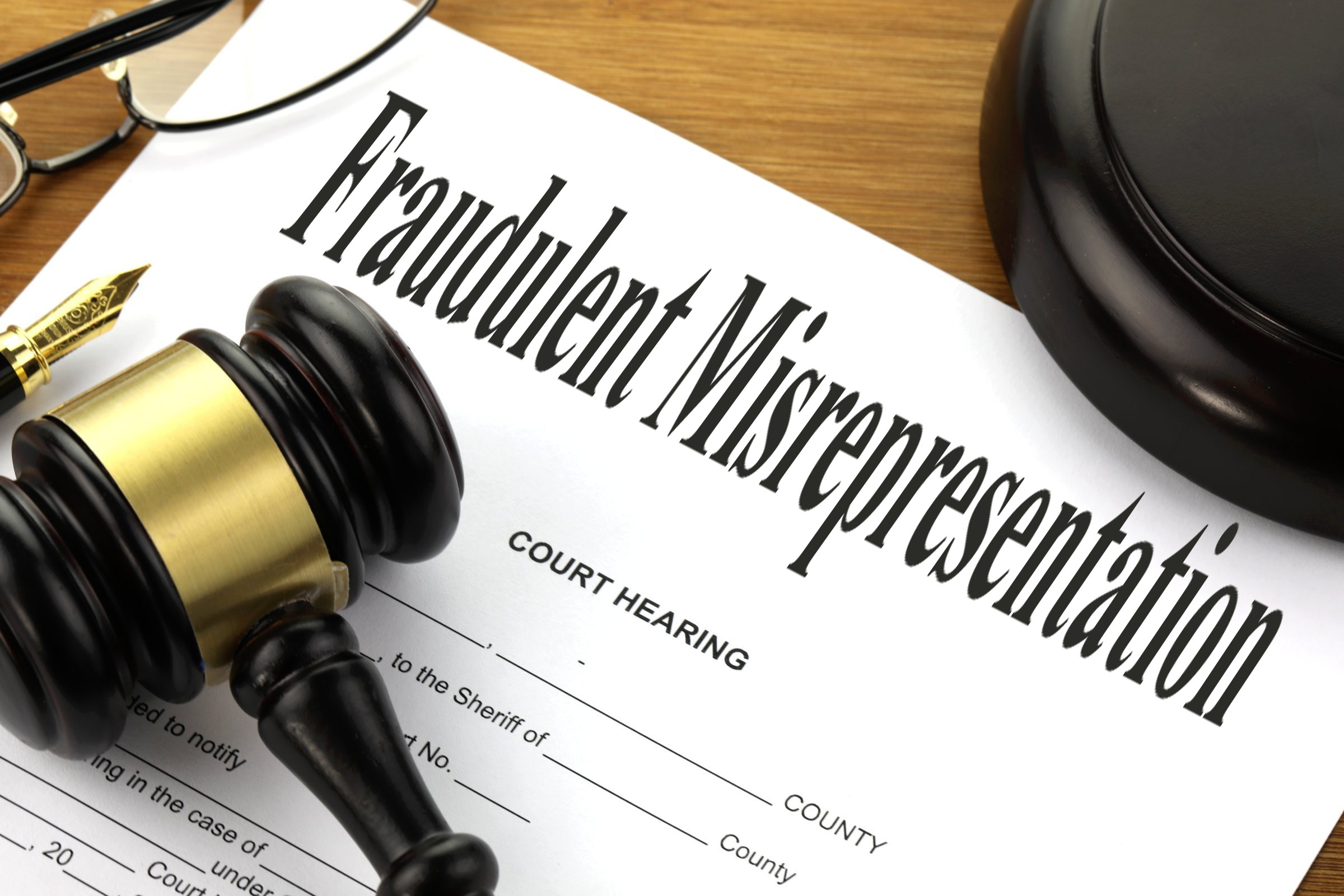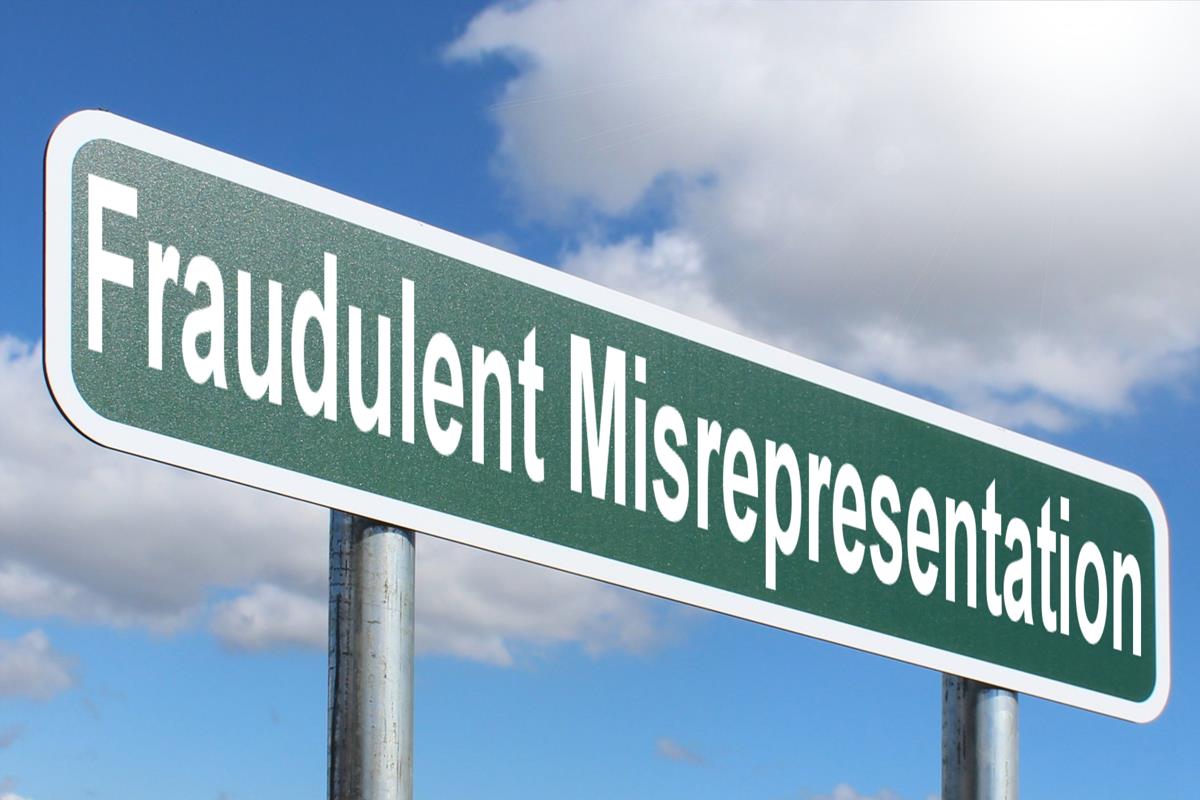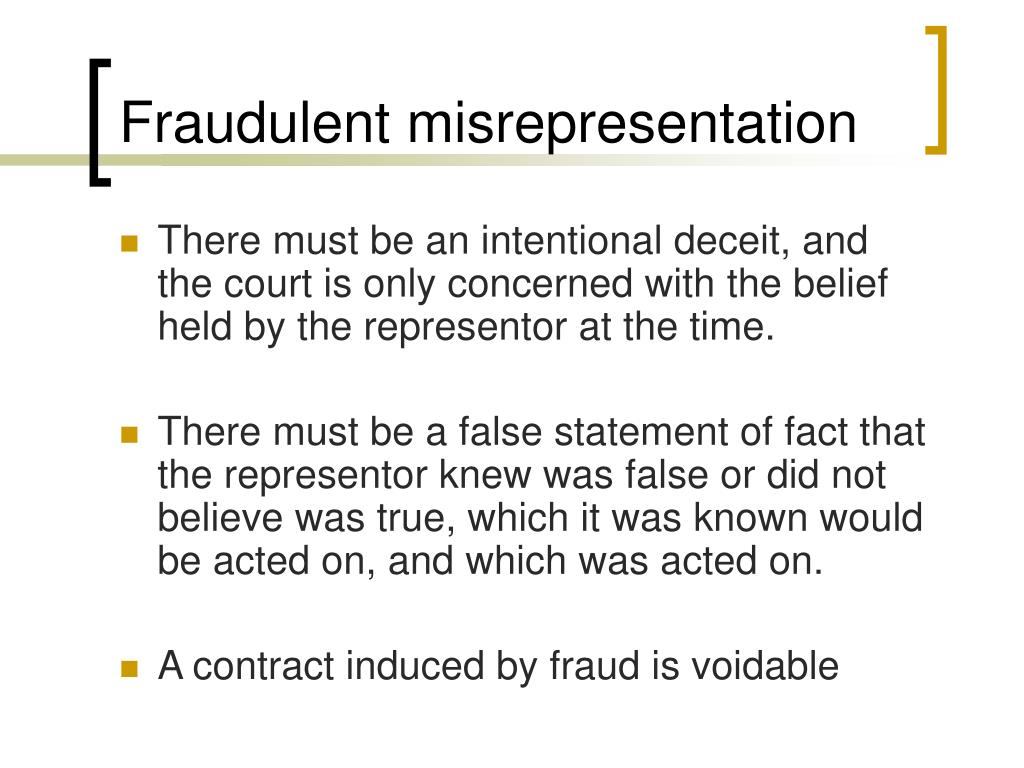Do you scour the internet for 'fraudulent misrepresentation'? You can find all the material on this web page.
Table of contents
- Fraudulent misrepresentation in 2021
- Fraudulent misrepresentation elements
- Fraudulent misrepresentation philippines
- Fraudulent misrepresentation example
- Fraudulent misrepresentation uk
- Fraudulent misrepresentation contract law
- Fraudulent misrepresentation damages
- Fraudulent misrepresentation cases
Fraudulent misrepresentation in 2021
 This picture shows fraudulent misrepresentation.
This picture shows fraudulent misrepresentation.
Fraudulent misrepresentation elements
 This picture shows Fraudulent misrepresentation elements.
This picture shows Fraudulent misrepresentation elements.
Fraudulent misrepresentation philippines
 This image demonstrates Fraudulent misrepresentation philippines.
This image demonstrates Fraudulent misrepresentation philippines.
Fraudulent misrepresentation example
 This picture demonstrates Fraudulent misrepresentation example.
This picture demonstrates Fraudulent misrepresentation example.
Fraudulent misrepresentation uk
 This image demonstrates Fraudulent misrepresentation uk.
This image demonstrates Fraudulent misrepresentation uk.
Fraudulent misrepresentation contract law
 This picture representes Fraudulent misrepresentation contract law.
This picture representes Fraudulent misrepresentation contract law.
Fraudulent misrepresentation damages
 This image representes Fraudulent misrepresentation damages.
This image representes Fraudulent misrepresentation damages.
Fraudulent misrepresentation cases
 This image demonstrates Fraudulent misrepresentation cases.
This image demonstrates Fraudulent misrepresentation cases.
What is the definition of a fraudulent misrepresentation?
A fraudulent misrepresentation is a statement that the defendant made knowing it was false or that the defendant made recklessly to induce the other party to enter a contract. The injured party can seek to void to contract and recover damages from the defendant.
How can fraudulent misrepresentation lead to a voiding of a contract?
In terms of insurance, fraudulent misrepresentation can lead to voiding of a contract. In proving fraudulent misrepresentation, five elements must concur. First, there should be material misrepresentation. In other words, there must be a false statement of a fact material to the contractual agreement.
Are there any remedies for fraudulent misrepresentation?
This Buzzle post will explain the concept of fraudulent misrepresentation, including its elements, remedies, and examples. The tort of deceit is a commonly-used remedy when you have been a victim of fraudulent misrepresentation.
What are the different types of misrepresentation?
There are three types of misrepresentation―innocent, negligent, and fraudulent. In case the false statement was made without any knowledge of the same or with no bad intent, it qualifies for innocent misrepresentation. Fraudulent misrepresentation, on the other hand, is when the untrue statement is made intentionally, to trick the other party.
Last Update: Oct 2021